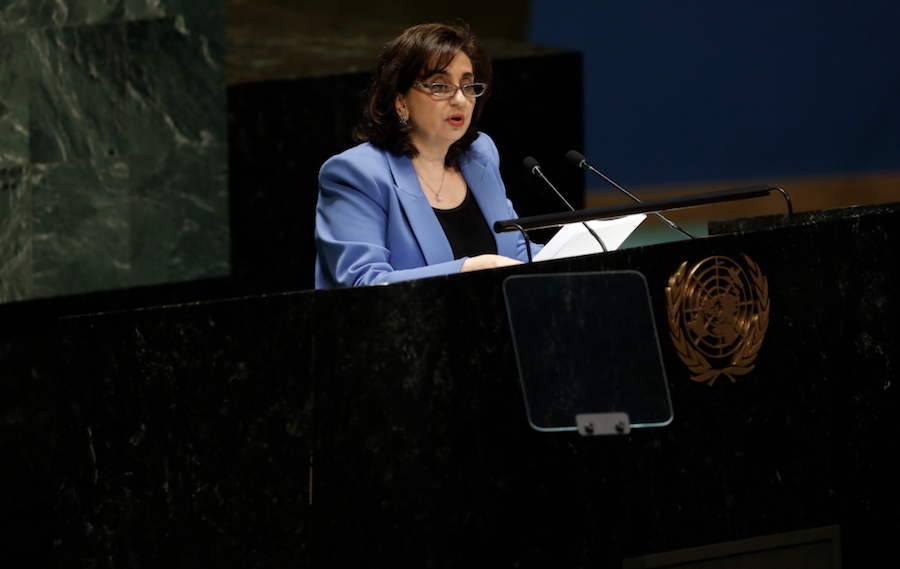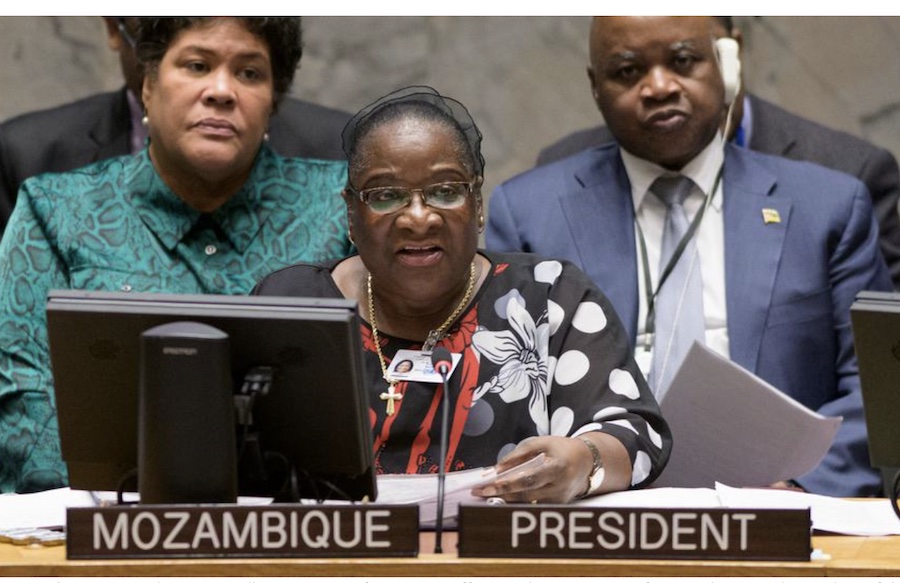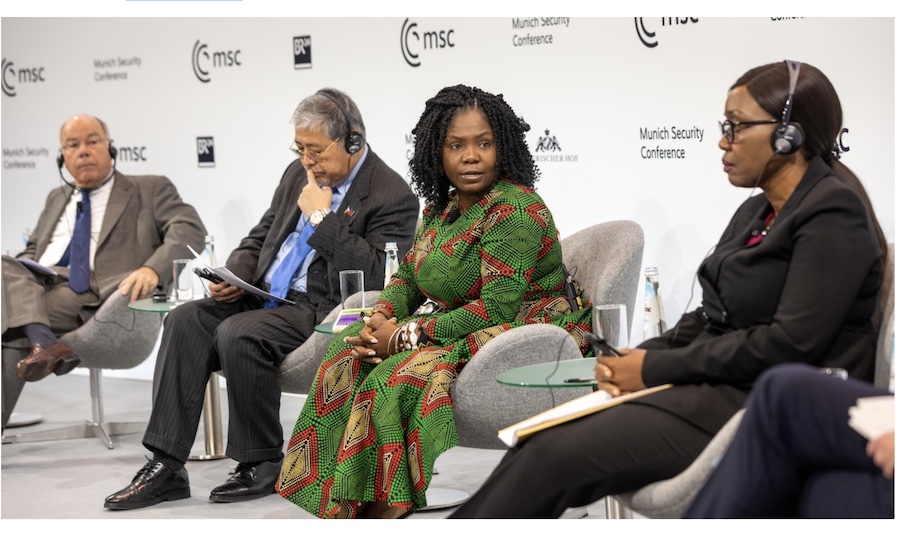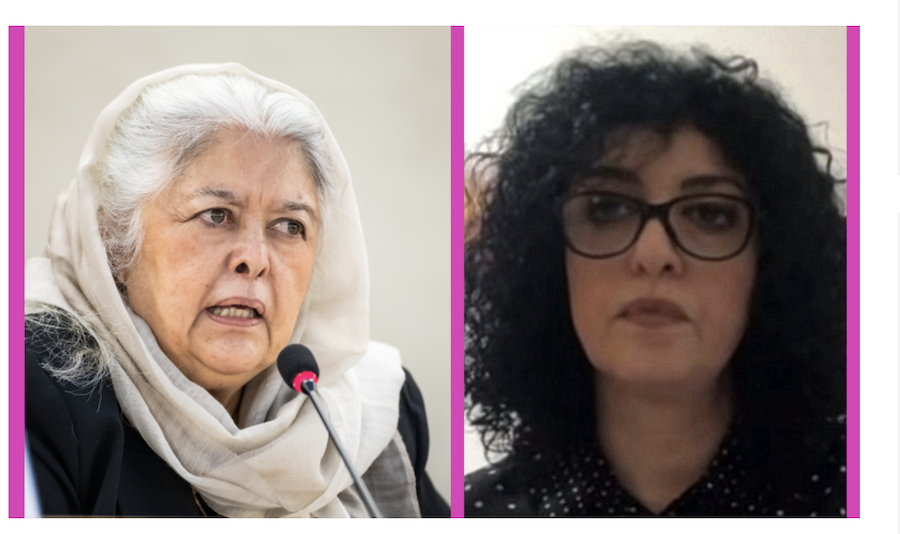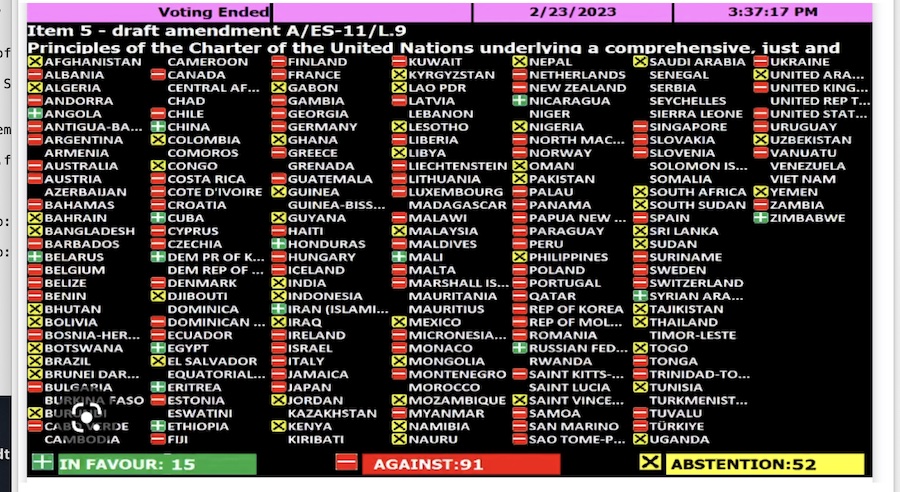FREE FLOW OF INFORMATION
A press release from the Ministry of Foreign Affairs of the Peoples Republic of China
(Editor’s note: Here is the proposal of principles for a peace settlement of the Ukraine War as published by the Chinese government, presented by the Chinese President Xi to Russian President Putin during his recent visit, and scheduled to be presented virtually by him to Ukraine President Zelensky. While it lists the principles needed, it does not consider whether Russia must give back some of the territories it has seized during the war.)

China’s Position on the Political Settlement of the Ukraine Crisis
2023-02-24 09:00
1. Respecting the sovereignty of all countries. Universally recognized international law, including the purposes and principles of the United Nations Charter, must be strictly observed. The sovereignty, independence and territorial integrity of all countries must be effectively upheld. All countries, big or small, strong or weak, rich or poor, are equal members of the international community. All parties should jointly uphold the basic norms governing international relations and defend international fairness and justice. Equal and uniform application of international law should be promoted, while double standards must be rejected.
2. Abandoning the Cold War mentality. The security of a country should not be pursued at the expense of others. The security of a region should not be achieved by strengthening or expanding military blocs. The legitimate security interests and concerns of all countries must be taken seriously and addressed properly. There is no simple solution to a complex issue. All parties should, following the vision of common, comprehensive, cooperative and sustainable security and bearing in mind the long-term peace and stability of the world, help forge a balanced, effective and sustainable European security architecture. All parties should oppose the pursuit of one’s own security at the cost of others’ security, prevent bloc confrontation, and work together for peace and stability on the Eurasian Continent.
3. Ceasing hostilities. Conflict and war benefit no one. All parties must stay rational and exercise restraint, avoid fanning the flames and aggravating tensions, and prevent the crisis from deteriorating further or even spiraling out of control. All parties should support Russia and Ukraine in working in the same direction and resuming direct dialogue as quickly as possible, so as to gradually deescalate the situation and ultimately reach a comprehensive ceasefire.
4. Resuming peace talks. Dialogue and negotiation are the only viable solution to the Ukraine crisis. All efforts conducive to the peaceful settlement of the crisis must be encouraged and supported. The international community should stay committed to the right approach of promoting talks for peace, help parties to the conflict open the door to a political settlement as soon as possible, and create conditions and platforms for the resumption of negotiation. China will continue to play a constructive role in this regard.
5. Resolving the humanitarian crisis. All measures conducive to easing the humanitarian crisis must be encouraged and supported. Humanitarian operations should follow the principles of neutrality and impartiality, and humanitarian issues should not be politicized. The safety of civilians must be effectively protected, and humanitarian corridors should be set up for the evacuation of civilians from conflict zones. Efforts are needed to increase humanitarian assistance to relevant areas, improve humanitarian conditions, and provide rapid, safe and unimpeded humanitarian access, with a view to preventing a humanitarian crisis on a larger scale. The UN should be supported in playing a coordinating role in channeling humanitarian aid to conflict zones.
6. Protecting civilians and prisoners of war (POWs). Parties to the conflict should strictly abide by international humanitarian law, avoid attacking civilians or civilian facilities, protect women, children and other victims of the conflict, and respect the basic rights of POWs. China supports the exchange of POWs between Russia and Ukraine, and calls on all parties to create more favorable conditions for this purpose.
7. Keeping nuclear power plants safe. China opposes armed attacks against nuclear power plants or other peaceful nuclear facilities, and calls on all parties to comply with international law including the Convention on Nuclear Safety (CNS) and resolutely avoid man-made nuclear accidents. China supports the International Atomic Energy Agency (IAEA) in playing a constructive role in promoting the safety and security of peaceful nuclear facilities.
8. Reducing strategic risks. Nuclear weapons must not be used and nuclear wars must not be fought. The threat or use of nuclear weapons should be opposed. Nuclear proliferation must be prevented and nuclear crisis avoided. China opposes the research, development and use of chemical and biological weapons by any country under any circumstances.
9. Facilitating grain exports. All parties need to implement the Black Sea Grain Initiative signed by Russia, Türkiye, Ukraine and the UN fully and effectively in a balanced manner, and support the UN in playing an important role in this regard. The cooperation initiative on global food security proposed by China provides a feasible solution to the global food crisis.
10. Stopping unilateral sanctions. Unilateral sanctions and maximum pressure cannot solve the issue; they only create new problems. China opposes unilateral sanctions unauthorized by the UN Security Council. Relevant countries should stop abusing unilateral sanctions and “long-arm jurisdiction” against other countries, so as to do their share in deescalating the Ukraine crisis and create conditions for developing countries to grow their economies and better the lives of their people.
11. Keeping industrial and supply chains stable. All parties should earnestly maintain the existing world economic system and oppose using the world economy as a tool or weapon for political purposes. Joint efforts are needed to mitigate the spillovers of the crisis and prevent it from disrupting international cooperation in energy, finance, food trade and transportation and undermining the global economic recovery.
12. Promoting post-conflict reconstruction. The international community needs to take measures to support post-conflict reconstruction in conflict zones. China stands ready to provide assistance and play a constructive role in this endeavor.
Can the peace movement help stop the war in the Ukraine?
Does China promote a culture of peace?
Reactions around the world
As expected and widely reported, the Chinese proposal was welcomed by Russia and Belarus and rejected by the United States and its NATO allies.
But what about the rest of the world.
The proposal was officially welcomed and supported by President Orban of Hungary and by the Minister of International Relations of South Africa. The support by Hungary was reported as headline news in Cuba and Niger. The South African support was echoed in columns published by the South African news sites Business Live and SABC news.
Writing from Brazzaville, Congo, the journal Adiac reported the remarks of the Chinese ambassador to that country by headlining “China offers ways out of the crisis in Ukraine.”
Many media around the world criticised the fact that the Chinese proposal failed to demand the return of regions seized by Russia, including Arab News published in Saudi Arabia, Jornada of Mexico and Utusan Malaya .
On the other hand, the Mexican commentator Javier Jiménez Olmos welcomed the proposal, saying that the return of regions seized by Russia is implied by the proposal’s recognition of Ukrainian sovereignty and its territorial integrity.
Other media simply said that the plan has no chance of success unless the Americans and NATO change their opposition, for example the Emirates Center for Policies and commentator Jamil Matar from Egypt.
In this regard, the editorial of the Business Standard of Bangladesh said that the American refusal shows that “America is losing influence and prestige globally” and Ahmed Al-Hiyari, writing from Jordan, said, All the items that China put forward in its paper have already been adopted by the Americans and Europeans through their positions towards the war in Ukraine, whether it is respect for the sovereignty of all countries and that all countries are equal, regardless of their size, strength or wealth, or abandoning the imposition of unilateral sanctions and renouncing the Cold War mentality, and stopping Fighting and conflict. . . . Nevertheless, the Americans and Europeans hastened to say that it did not amount to a plan, and at another time by questioning it. . . .The red line is that China is forbidden to succeed in Ukraine.
The Libyan media Tawasul headlined the remarks by the deputy spokesman for the United Nations Secretary-General, Farhan Haq, who said: “It is too early for the international organization to evaluate the Chinese peace proposal to end the war in Ukraine. We will need more details on the proposal in the first place.”
Some voices were more critical of the Chinese proposal.
Writing from India, Ranjit Kumar of the Navbgarat Times said that “The 12-point proposal put forward by China is heavily tilted in favor of Russia. . . Ukraine cannot accept China’s peace offer because the Russian army’s advance will turn into the Russia-Ukraine border if the ceasefire comes into force.
And writing from Indonesia, the news agency Inilah quotes the India-based EurAsian Times that the Chinese plan contradicts their own policy towards Taiwan, since the Chinese do not respect their sovereignty and have imposed sanctions against them.

